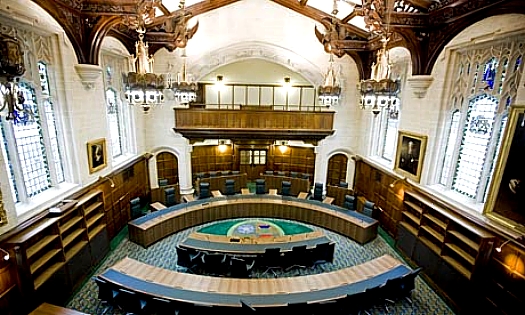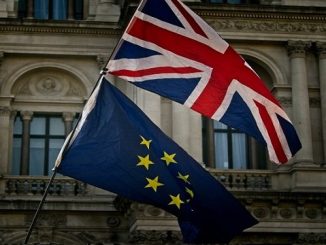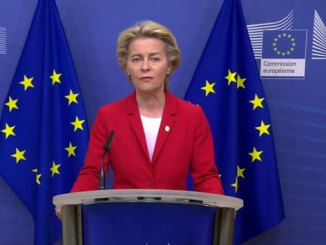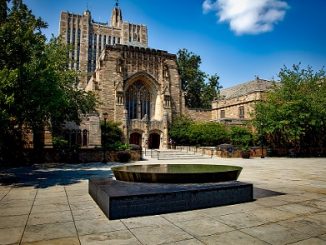
By Andrew Gimson
The seating plan has already been done. Walking from right to left along the curved wooden desk, the visitor can read on small rectangular pieces of paper the names of Lord Hodges, Lord Carnwath, Lord Sumption, Lord Clarke, Lord Mance, Lord Neuberger, Lady Hale, Lord Kerr, Lord Wilson, Lord Reed and Lord Hughes.
The names are rather close together, for it was not envisaged that more than nine justices of the Supreme Court would ever sit at one time, and a panel of five is usually considered sufficient. But the Brexit case, which will be heard from Monday to Thursday of next week, is of such critical importance that for the first time, all 11 justices are being fielded.
The court does not look like the kind of place that “enemies of the people” – to use the Daily Mail‘s characterisation of the High Court judges whose verdict the Government is challenging – would conspire to overthrow the referendum result.
It occupies the former council chamber in what used to be Middlesex Guildhall, built in 1913 on one side of Parliament Square. The conversion of this imposing edifice has been carried out in the style of the early years of the 21st century.
This means that period features have been restored so thoroughly they look disconcertingly immaculate, and to these have been added a considerable quantity of glass, a café in a newly glazed light well, and a poem by Andrew Motion.
The staff could not be more friendly and the public are welcome to walk in and look around, though as at other courts one has to go through security first. In a promotional video, bubbly young Stacey Dooley says “there’s just a lovely atmosphere all round”.
At the café, an admirable volume about the history and architecture of the building can be purchased, reduced from £19.95 to the more accessible price of £5.00. In this Lady Hale, Deputy President of the court, writes of her institution:
“It does not need to impress the world with the majesty of the law: its authority can be taken for granted. It needs a dignified but attractive environment in which the most difficult issues can be debated between counsel and the bench in a structured but informal way. At its best, it has been said, the atmosphere is that of a learned seminar.”
How earnestly the justices strive to live up to the ideal expressed with such complacency by Lady Hale. There can be no doubt of their industry, intellect and incorruptibility. Yet I for one cannot help sighing for the majesty of the law, which in some ways seemed more straightforward than all this guff about openness and accessibility.
The justices now find themselves embarrassed, in the best (or worst) modern style, that with one exception they are men, who went to independent schools, followed in most cases by Oxford or Cambridge. Dooley asks Lady Hale why there aren’t more women, and gets this reply:
“Why there aren’t more women is something of a mystery… There aren’t a lot of women at the top of the legal profession who are eligible to become judges.”
Lord Sumption has warned, quite rightly, that a precipitate attempt to recruit more women could wreck the judiciary. For the deal until recent years has been that a gifted barrister could make vast sums by working like a maniac, and then slow down a bit, and enjoy the satisfactions of public service, by becoming a judge, which also carried a good pension.
Edward Gibbon, in his Autobiography, records that his mother exhorted him to become a lawyer, and goes on:
“I cannot repent of having neglected her advice. Few men, without the spur of necessity, have resolution to force their way through the thorns and thickets of that gloomy labyrinth.”
With the exception of a few wonderfully gifted individuals, getting to the top of the legal profession requires a willingness to cudgel one’s brains, and ignore personal inclinations, for years on end.
One such wonderfully gifted individual was the late Lord Bingham. But as he records in the opening lines of another essay in the book mentioned above:
“On 12 June 2003 the government announced that the ancient office of Lord Chancellor was to be abolished and a new Supreme Court of the United Kingdom, separate from the House of Lords, established. The announcement came as a surprise to the public, the legal profession and some senior ministers. There had been no Royal Commission or select committee, as in 1867-76 when the last major change to the structure of the judiciary had been made. There had been no manifesto pledge to make such changes. There had been no public consultation. Nor was there any substantial groundswell of public opinion demanding change. Early indications were that the proposals had not been very fully thought out.”
The justices of the Supreme Court are a Blairite innovation for which they themselves had raised no demand. They are casting around for a role beyond that of the old law lords, when most members of the public would be more than happy for them to remain as inhibited as their predecessors.
We are not living in the United States, and do not have a separation of powers of the kind that has existed in that great country for over two centuries.
So although I do not always agree with that despot, and bully, Paul Dacre (editor since 1992 of the Daily Mail), and although I deprecate his French Revolutionary line about “Enemies of the People”, I cannot help thinking that whatever the Supreme Court may decide next week, it cannot be allowed to negate the referendum result.
Source: conservativehome.com





Be the first to comment